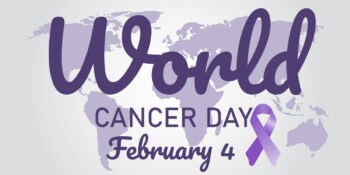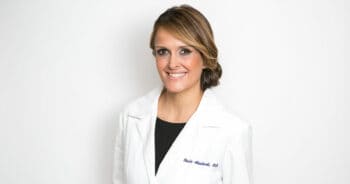Former WWE star Maryse Mizanin found a pre-cancerous mass thanks to Dr. Aliabadi’s life-saving intervention. Learn more.
Read more
Call (844) 863-6700 or
request your appointment

Former WWE star Maryse Mizanin found a pre-cancerous mass thanks to Dr. Aliabadi’s life-saving intervention. Learn more.
Read more
Ehlers-Danlos syndrome often goes undiagnosed or dismissed, particularly in women. Why isn’t this condition receiving the attention it deserves?
Read more
Olivia Munn’s breast cancer risk assessment led to her early breast cancer diagnosis and treatment. How do these assessments work?
Read more
In an exclusive interview with TODAY, Dr. Aliabadi shares insight into Olivia Munn’s cancer diagnosis and the importance of breast cancer risk assessments.
Read more
Following Olivia Munn’s breast cancer diagnosis announcement, OB/GYN Dr. Aliabadi discusses breast cancer risks and diagnosis with E! News.
Read more
Olivia Munn calls Dr. Aliabadi her “guardian angel” after calculating breast cancer risk and uncovering stage 1 breast cancer.
Read more
What medications are safe during pregnancy, and how can you ensure you’re making the right choices for you and your baby?
Read more
For World Cancer Day 2024, Dr. Aliabadi provided her insight on evaluating cancer risk and expanding healthcare access to people around the world.
Read more
An inspiring woman used fashion and photography to share her cancer journey and the five stages of grief. Learn about “The Beauty of Acceptance” by Melissa Watkins.
Read more
Discover the benefits and guidelines for exercising during pregnancy, but how do physiological changes impact safety and recommended exercises?
Read more
In 2019, Dr. Aliabadi discovered she had breast cancer after undergoing an elective mastectomy. Others continue to share her story to inspire patients.
Read more
As we age, do our labia undergo changes, and what are the five ways in which these changes manifest, impacting both aesthetics and health?
Read more
How do I treat morning sickness? When is morning sickness serious? Learn about morning sickness relief from a top LA OB/GYN.
Read more
What are the immediate benefits of quitting smoking, and does quitting smoking by age 35 significantly reduce your health risks?
Read more
Many women are turning to marijuana to help with morning sickness, stress, and pregnancy pains. But is marijuana actually safe during pregnancy?
Read more
A UK mother almost died after buying counterfeit Ozempic online. Fake weight loss drugs are available online, but have no safety guarantees.
Read moreThe clinic of Dr. Aliabadi is dedicated to transparently publishing customer feedback and reviews. This policy applies to reviews submitted by patients through first- and third-party review sites monitored on this platform. We reserve the right to remove posts, comments, or reviews that violate our content policies and/or are suspected to be fraudulent.
The clinic of Dr. Aliabadi (hereafter referred to as the “Clinic”) supports the HONcode initiative to improve the quality of medical and health information available on the world wide web. Learn more about the HONcode.
As a result, we pledge the following:
1. Authoritative
Any medical or health advice provided and hosted on this site will only be given by medically trained and qualified professionals unless a clear statement is made that a piece of advice offered is from a non-medically qualified individual or organization.
2. Complementary
The information provided on this site is designed to support, not replace, the relationship that exists between a patient/site visitor and his/her existing physician.
3. Privacy
Confidentiality of data relating to individual patients and visitors to a medical/health Web site, including their identity, is respected by this Web site. The Web site owners undertake to honor or exceed the legal requirements of medical/health information privacy that apply in the country and state where the Web site and mirror sites are located.
We use Google Analytics on our website to analyze the audience of the website and improve our content. No personal information is ever collected from Google Analytics. For further information on the privacy policy concerning Google Analytics, please go to: https://support.google.com/analytics/answer/6004245?hl=en.
4. Attribution
Where appropriate, information contained on this site will be supported by clear references to source data and, where possible, have specific HTML links to that data. The date when a clinical page was last modified will be clearly displayed (e.g. at the bottom of the page).
The source of the medically related content are written by the doctors and medical staff of the Clinic. Authorship is attributed on the content page and all information is medically reviewed by the Clinic’s education team.
5. Justifiability
Any claims relating to the benefits/performance of a specific treatment, commercial product or service will be supported by appropriate, balanced evidence in the manner outlined above.
Please note that there are no guarantees that every medical treatment or surgery will satisfactorily cure or repair every condition, for every person, every single time.
In regard to any before and after pictures displayed on our website, the following are true:
6. Transparency
The designers of this Web site will always seek to provide information in the clearest possible manner and provide contact addresses for visitors that seek further information or support. The Webmaster’s e-mail address is webmaster@draliabadi.com.
7. Financial disclosure
No third party commercial or non-commercial organizations has ever provided any economic support or services for this website.
If that ever changes, it will be clearly identified, including the identities of commercial and non-commercial organizations that have contributed funding, services or material for the site.
8. Advertising policy
The Clinic does not accept any advertising from any company or individual and never has.
If that ever changes, the source of funding will be clearly state and a brief description of our advertising policy adopted by the Web site owners will be displayed on the site. If advertising and/or other promotional material will ever be presented to website visitors, it will be in a manner and context that facilitates differentiation between it and the original material created by the institution operating the site.
1. Terms
By accessing this web site, you are agreeing to be bound by these web site Terms and Conditions of Use, applicable laws and regulations and their compliance. If you disagree with any of the stated terms and conditions, you are prohibited from using or accessing this site. The materials contained in this site are secured by relevant copyright and trade mark law.
2. Use License
3. Disclaimer
The materials on the Clinic’s site are given “as is”. The Clinic makes no guarantees, communicated or suggested, and thus renounces and nullifies every single other warranties, including without impediment, inferred guarantees or states of merchantability, fitness for a specific reason, or non-encroachment of licensed property or other infringement of rights. Further, the Clinic does not warrant or make any representations concerning the precision, likely results, or unwavering quality of the utilization of the materials on its Internet site or generally identifying with such materials or on any destinations connected to this website
4. Constraints
In no occasion should the Clinic or its suppliers subject for any harms (counting, without constraint, harms for loss of information or benefit, or because of business interference) emerging out of the utilization or powerlessness to utilize the materials on the Clinic’s Internet webpage, regardless of the possibility that the Clinic or an approved agent has been told orally or in written of the likelihood of such harm. Since a few purviews don’t permit constraints on inferred guarantees, or impediments of obligation for weighty or coincidental harms, these confinements may not make a difference to you.
5. Amendments and Errata
The materials showing up on the clinic’s site could incorporate typographical or photographic mistakes. The Clinic does not warrant that any of the materials on its site are exact, finished, or current. The Clinic may roll out improvements to the materials contained on its site whenever without notification. The Clinic does not, then again, make any dedication to update the materials.
6. Links
The Clinic has not checked on the majority of the websites or links connected to its website and is not in charge of the substance of any such connected webpage. The incorporation of any connection does not infer support by the Clinic of the site. Utilization of any such connected site is at the user’s own risk.
7. Site Terms of Use Modifications
The Clinic may update these terms of utilization for its website whenever without notification. By utilizing this site you are consenting to be bound by the then current form of these Terms and Conditions of Use.
8. Governing Law
Any case identifying with the Clinic’s site should be administered by the laws of the country of the United States of America and the General Terms and Conditions applicable to Use of a Web Site.
Your privacy is critical to us. Likewise, we have built up this Policy with the end goal you should see how we gather, utilize, impart and reveal and make utilization of individual data. The following blueprints our privacy policy.
We are focused on leading our business as per these standards with a specific end goal to guarantee that the privacy of individual data is secure and maintained.
For informational purposes only, a link to the federal Centers for Medicare and Medicaid Services (CMS) Open Payments web page is provided here. The federal Physician Payments Sunshine Act requires that detailed information about payment and other payments of value worth over ten dollars ($10) from manufacturers of drugs, medical devices, and biologics to physicians and teaching hospitals be made available to the public.
The Open Payments database is a federal tool used to search payments made by drug and device companies to physicians and teaching hospitals. It can be found at https://openpaymentsdata.cms.gov.
Dear Patient,
You have the right to receive a “Good Faith Estimate” explaining how much your medical care will cost.
You have the right to receive a Good Faith Estimate for the total expected cost of any non-emergency items or services. This includes related costs like medical tests, examinations, office visits prescription drugs, and equipment (items or services reasonably expected to be furnished by this practice).
Make sure your health care provider gives you a Good Faith Estimate in writing at least one (1) business day before your medical service or item. You can also ask your health care provider, and any other provider you choose, for a Good Faith Estimate before you schedule an item or service.
If you receive a bill that is at least $400 more than your Good Faith Estimate, you can dispute the bill.
Make sure to save a copy or picture of your Good Faith Estimate.
For questions or more information about your right to a Good Faith Estimate, visit https://www.cms.gov/nosurprises. To speak to our billing department, please call (310) 652-5052.
Thank you.
Your friends at the clinic of Dr. Aliabadi
